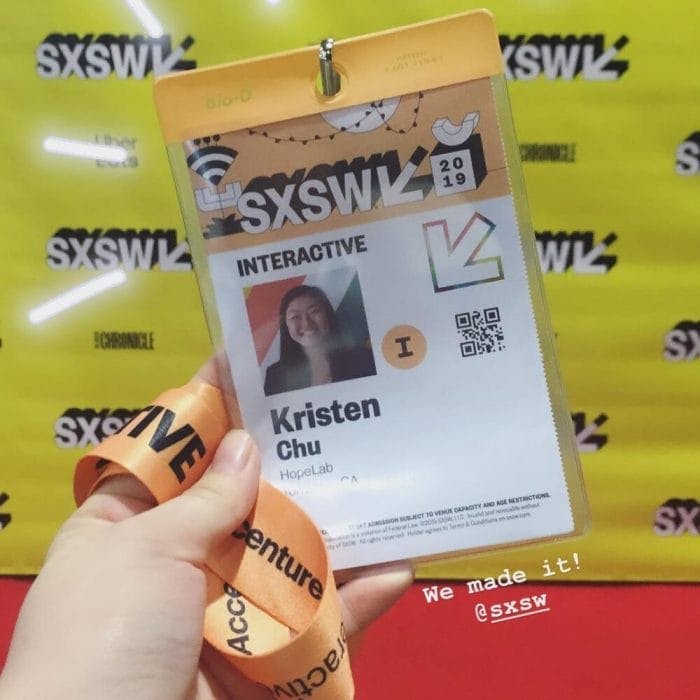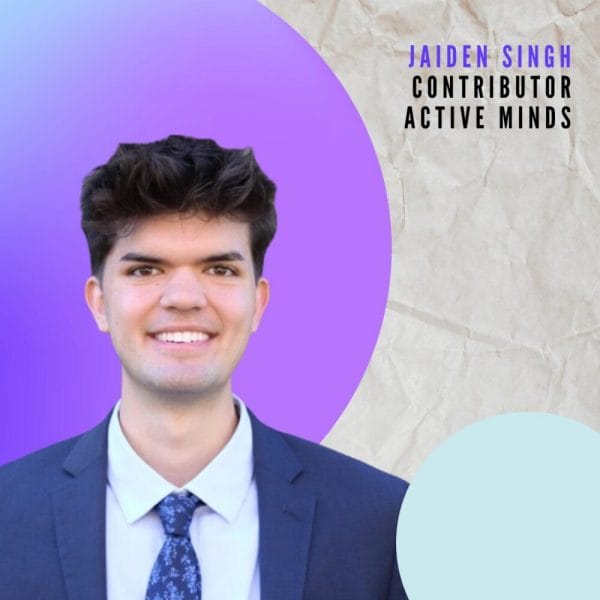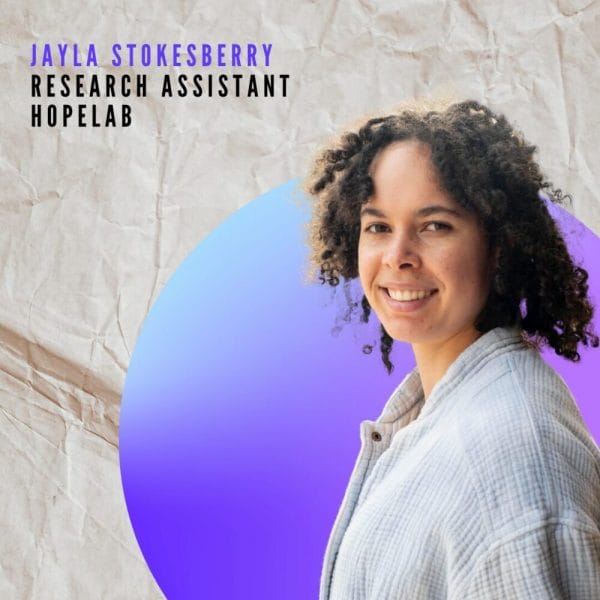In early March, Hopelab sent me to South by Southwest (SXSW), a conglomerate of some of the best and brightest technological developments, music, film, and comedy. SXSW is a huge event– try picturing 72,000 people wandering around Austin for a three-week span to find the latest innovations in media, culture, music, tech, and health. It’s a big deal. While the experience was exhilarating, I couldn’t help but wonder how cool it would be if my friends were mixed in with all of the working professionals, so they could experience it too.
As a psychology major at UCSB and former intern for Hopelab’s project on college students and mental well being, I attended many of the health technology and mental health-related sessions during my time at the conference. Sessions varied from discussions about the future of healthcare to panels about culture or gender and mental health, or keynote speakers shared wisdom on topics of storytelling and empathy. However, through the variation of panels and sessions, the same themes kept coming up in talks: the future and young people. Conversations of health and tech innovation led to very future-oriented questions. Practitioners from the field presenting on the future of healthcare asked, “How can we make technology increase compassion?” Or, “How can we change healthcare to become more human-centered?” Mental health advocates on a panel discussing mental health in minority communities posed questions like, “How can we become more culturally relevant?” and “How can we become more mindful of intersectional identities?” Keynote speakers Brene Brown and Susan Fowler both spoke about important lessons they learned in their past and encouraged young people to learn from their stories. Speakers shared these lessons, almost always framing them as, “If I could go back in time and talk to my younger self, I would say…”
Ironically, as I looked around at the people attending these panels, I barely saw any young people. So much about my generation was being presented, but so few were actually represented at the event. With all of these future-oriented questions and talk about educating the next generation, it seemed clear that young people should be listening in the audience. So where were they? This led me to wonder, how could a young person’s perspective have changed these panels? Rather than telling us how to be culturally relevant across the world of mental health, it would be more beneficial for a young person to offer their perspective growing up in an increasingly culturally diverse world. Instead of making assumptions about future generations, why not ask about and include their perspectives? Panels and sessions that did include young people’s perspectives, like Hopelab’s panel about teenagers, technology and mental health, brought insight directly from younger generations into the discussion.
If young people are the future’s leaders, then why not have them learn from the world’s present leaders? And to the speakers who mention telling their younger selves something, why don’t they?
Inspiring change for the future should include those who make up the future: today’s young people. Hearing all these important speakers share their greatest lessons and biggest ideas led me, a 21-year-old undergraduate in college, to realize the importance of including young people in the process of creating, spreading, and enacting ideas about the future of healthcare, mental health, and technology. Young people need to be in the room to speak about and to hear these things because it not only gives them the roadmap to understanding the directions of the future but also marks the beginning of how we create change.
There are two ways I felt the SXSW conference impacted me most. SXSW educated me to be able to envision diverse perspectives in future environments and empowered me on how a young person can enact change. Sometimes it’s hard to find opportunities to get exposed to the real world, whether that means hearing from industry leaders, the latest innovations, and inspiring ideas outside a college-world-bubble. Seeing leaders in many fields collectively share powerful thoughts, allowed me to understand various perspectives on current progress, issues, and ideas. Empowerment was the second and greatest tool that attending several SXSW panels and sessions gave me. Empowerment is a tool I define as the energy that pushes me to facilitate change. Hearing some of the latest and greatest ideas in the industry from some of the greatest thinkers allowed me as someone who has yet to enter the workforce and is still shaping her idea of the right ‘career path,’ to be filled with the drive to dream big.
While there were a number of young people crawling SXSW in search of the same aspects as me, I wish to see many more be included in the process. I wish to see organizations sponsor badges for young people to be in the audience of SXSW, and for SXSW to include young people in the conversations about young generations. In addition to a place that helps build a professional network for young people, the SXSW conference can be so much more– it can empower and educate young people, future leaders, to see where and how to make a change!!
About the Guest Blogger:
Hi there, my name is Kristen Chu! I am in my fourth year at the University of California, Santa Barbara (UCSB) majoring in Psychology and Communication, and minoring in Applied Psychology. Here at UCSB, I work as a Mental Health Peer Counselor offering drop-in sessions to students and developing mental health outreach programs to various populations on campus. I am apart of several Psychology research labs, committed to studying aspects related to culture, emotion, and resilience. Last summer, I had the opportunity to join Hopelab as a strategy and design intern, working on a project related to college students, loneliness, and mental well being. I am originally from Torrance, California and am very passionate about movie-watching, traveling, and trying new foods!





